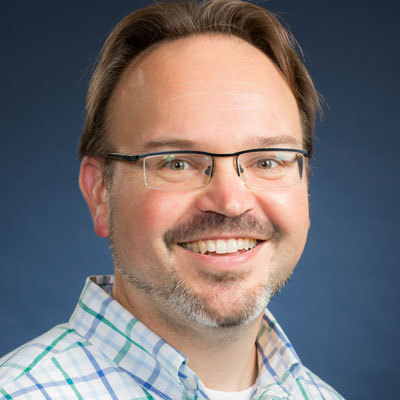Podcast Preview with Michael Timko and Heather LeClerc



December 14, 2022
BY Anna Simet
Worcester Polytechnic Institute researchers Michael Timko, professor of chemical engineering, and Healther LeClerc, Ph.D. candidate, were guests on the Biodiesel Magazine podcast this fall. Timko and LeClerc are part of an interdisciplinary team of researchers at WPI that has been looking at ways to use food waste to make a renewable and more affordable fuel replacement for oil-based diesel. The work, led by Timko, is detailed in a paper recently published in the journal iScience. Through creation of biodiesel via a hydrothermal liquefaction method, the researchers believe they can bring the price of gas down significantly.
BDM: Tell our listeners a bit about the backstory of your research and the driving force, and how you came up with the idea.
Timko: We have been working on this for several years. The interest and motivation is that the U.S. alone produces many millions of tons of food waste every year. If left alone and out in landfills, it generates methane … besides that, it can decompose, cause problems for water quality, and it takes up a lot of space in our landfills. At the same time, food waste has a lot of embodied energy. The challenge with food waste is that it’s very heavy and has a high water content—roughly half—and a lot of technologies that have been developed really aren’t compatible with that high level of water. Also, there can be fats, lipids and greases in food waste, but it’s not 100% FOG, so the typical biodiesel process, for example—taking used cooking oil and reacting with methanol—that kind of technology doesn’t work for whole food waste. So, you need different technology. What we’ve been working on for several years is a technology called hydrothermal liquefaction (HTL). We didn’t invent it, as it was discovered in the 1930s, but it’s made a resurgence in the past 10 or 15 years … it’s very compatible with wet waste. Basically, you take your organic stream, which probably has water in it, heat it up to temperatures that depend a bit on your product as well as your feed—maybe 250 to 250 degrees Celsius—with pressure that is sufficient that the water stays liquid, and a reaction time in the order of 10 mins to two hours. Out of that, you get several products, but the one we’re trying to maximize is biocrude, which can be treated in a separate step, to produce something like biodiesel—we call it renewable diesel. Chemically it’s closer to petroleum diesel than to FAME [fatty acid methyl ester] …
BDM: Why is hydroxyapatite a good catalyst for this process, and what does it do?
LeClerc: Real waste feeds have different things in it, like bones, and hydroxyapatite is a mineral found naturally in bones—it’s made of calcium and phosphorus. What’s really cool about this mineral it has a tunable chemical structure, so you can actually change the chemical structure and some of the properties of this mineral by the way that you synthesize it, and the pH of the medium that you synthesize the catalyst in.
BDM: Can you tell us a little bit more about the pricing of the fuel resulting from this new process?
LeClerc: The typical feedstock for the past 10 to 15 years, before waste became really prevalent, has been algae, which has the issue of a high cost to cultivate, even though it performs really well in the HTL process and gives you high yields. The [cultivation] cost is over $1,000 per dry ton, which leads to a minimum fuel selling price upwards of $10 per gallon of gas equivalent (GGE). When we do that with our food waste without our hydroxyapatite catalyst, we’re able to bring the minimum fuel selling price to about $7 to $8 per GGE. With our catalyst, this drops all the way to about $4 without including any sort of environmental- or government-based incentives. Once we’re able to include current incentives based on the Renewable Fuel Standard, then were able to bring it down to about $1.10 per GGE, which is an amazing price, especially in the sate of today’s gasoline prices.
Listen to the rest of the podcast:
www.biodieselmagazine.com/pages/podcasts
Don't Miss an Episode:
Biodiesel Magazine’s recent podcasts:
S01 E08 Maximizing Opportunities,
Overcoming Challenges and
Serving Needs of UCO Collectors
Featuring Kristof Reiter, Founder, Reiter Companies
S01 E09 Alder Fuels: Powerful Partnerships and a 1 Billion-Gallon Goal
Featuring Darren Fuller, SVP of Sales and Business Development, Alder Fuels
Interested in being a guest?
Contact Danielle Piekarski at
dpiekarski@bbiinternational.com
Advertisement
Advertisement
Upcoming Events





